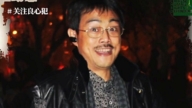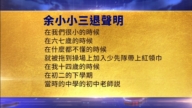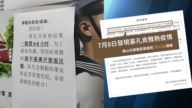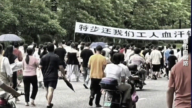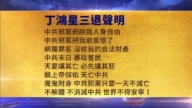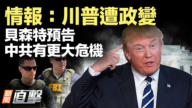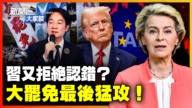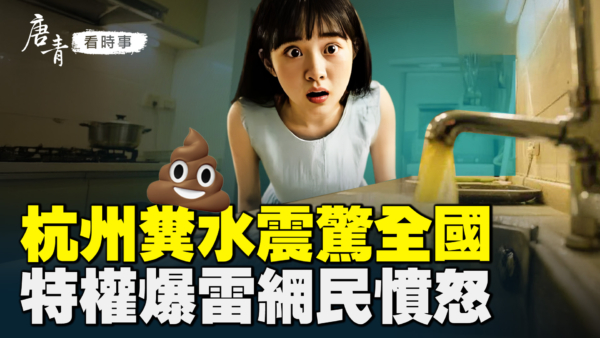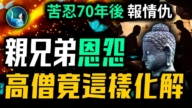【新唐人2014年09月22日讯】中国“21世纪网”被指涉嫌新闻敲诈之际,北京成立“新闻道德委员会”响应整顿,宣称要打击新闻业道德规范丧失的行为,加强新闻行业的监督和自律。评论认为,中国新闻媒体丧失职业道德的最大原因,是没有新闻自由,一切按官方口径。那么,靠成立道德委员会,能解决这些问题吗?请看报导。
北京市新闻道德委员会在9月16号成立,19名成员是来自北京市新闻单位负责人、专家学者或一线记者、编辑等。北京市记协主席梅宁华任道德委员会主任。
新华网宣称,北京新闻道德委员旨在加强新闻行业的监督和自律,惩治腐败。在新闻实践中,恪守客观、准确、公开、诚信的原则。
原河北人民广播电台编辑朱欣欣:“新闻媒体的客观、公开、真实,首先是在于新闻媒体的自主权,报导的自由、自主权,不受各个政治力量来干涉,跟腐败没有完全的关系。现在最关键的、最大的腐败是官方权力,一党专制这个权力,对新闻媒体报导的干涉、控制和打压,这才导致了一系列的在新闻界对于钱财这种贪腐。”
今年以来,央视多名高管及女主播因涉嫌“贪腐受贿”陆续带走调查。 9月初上海的“21世纪网”也因为涉嫌新闻腐败,包括网站主编在内的多人被抓捕。
朱欣欣指出,中国新闻媒体丧失职业道德的最大原因,是许多新闻不许报,一切按官方口径,媒体几乎变成官方的组成部分,导致按权力分赃、搞垄断。
朱欣欣:“许多官方媒体,它本身就是拥有了一定特权地位,它是官僚机构,一党专制权力的一个附属品,也是它专制权力的一个延伸。有些媒体人就占着这个虚有的特殊地位,以权谋私进行腐败的活动,如果专制体制不除,媒体的这个腐败现象也是很难彻底的遏制。”
朱欣欣表示,在中共一党专制下,包括官方牵头的民间组织,都是政府机构,所谓的“道德委员会”的人,自己都没有职业道德,靠他们来解决道德问题很荒谬。
事实上,担任北京市新闻道德委员会主任的梅宁华,本身就是位很受争议的人物。梅宁华原来是《北京日报》社长,今年4月份退休。北京媒体界的很多人士称他是“毛左”势力的重要代表。大纪元报导,围绕梅宁华身上的其它丑闻包括贪腐、生活作风、挺薄熙来等等。
原《杭州生活周刊》执行主编黄金秋:“如果说设立道德委员会能解决问题的话,我倒建议可以设立一个官员道德委员会,教师道德委员会,是不是避免教师奸淫学生,是不是避免这些官员贪污腐败呢?这是一个很荒唐的逻辑。”
黄金秋认为,道德只能是制度之下、法治之外的思想行为规范,如果一个社会到处黑箱作业、权力独尊,自然所有行业、所有资源都会见利忘义、丧失操守。
去年5月份河北、上海、浙江、山东、湖北5个省市,首批试点建立道德委员会,中共声称是“加强新闻队伍建设,解决新闻界突出问题”的举措。今年2月北京、黑龙江、福建、江西等10个地方也成立了新闻道德委员会。
朱欣欣认为,中共迟迟不出台新闻法,却在各地不断增设新闻道德委员会,是为了收紧对媒体的箝制,试图以整治新闻腐败及假新闻等,进一步封杀批评中共的声音。
采访编辑/李韵 后制/舒灿
The CCP’s Media Ethics Watchdogs Are Useless Without Freedom of the Press, Experts Say
The 21st Century Business Herald website was allegedly
involved in “news blackmail.”
In response, Beijing established a media ethics commission
to “crack down on immoral news media actions”
and “strengthen supervision and industry self-regulations.”
Commentators say the key reason for the moral failure
of Chinese media is that there is no freedom of the press
under the Chinese Communist Party’s (CCP) governance.
If so, how can the media ethics commission
solve the problem?
On Sept. 16, Beijing established the Media Ethics
Commission.
It’s comprised of 19 members who are newspaper
executives, scholars, top journalists or editors.
Mei Ninghua, chairman of the Beijing Journalists
Association, will lead the commission.
Xinhua News Agency said the commission will “place more
emphasis on media industry ethics” and strike corruption.
“Media should be subject to the principles
of objectivity, accuracy, openness and honesty.”
Zhu Xinxin, former editor of Hebei Radio Station:
”Objectivity, openness and honesty of new media
are based on freedom of the press.
There should be no involvement in political power.
So the issue has nothing to do with corruption.
Currently in China, the most corrupt power is the CCP
and its one-party dictatorship.
It is the CCP’s control and suppression over news media
that lead to all corruption among news industry.”
In 2014, a number of CCTV directors and anchors
were investigated on corruption charges.
In early September, 21cbh.com, a Shanghai business news
website, was also put under investigation for corruption.
The editor-in-chief and many other employees were arrested.
Zhu Xinxin commented that the moral failure of Chinese
media is mostly a result of the fact that many news
is forbidden to be touched as all media have to obey
to the CCP’s official “instructions” of media reporting.
Chinese media thus become part of the CCP’s power,
and finally obtain benefits with their monopolistic role.
Zhu Xinxin: “Many official news agencies are given privileges.
They are bureaucratic and subordinate to the party’s
dictatorship system.
Therefore some media workers took advantage
of their special role and power to benefit themselves
throughcorrupt practices.
Without completely eliminating the dictatorship system,
the media’s moral problems can hardly be solved.”
Zhu said that under the CCP’s dictatorship, even the so-called
civilian-run organizations are indeed run by government.
They have to be led by official departments.
The members of so-called “Media Ethics Commission”
probably lack professional ethnics as well.
It is ridiculous to expect them to work on immorality.
Mei Ninghua, chairman of the new commission,
is a controversial figure himself.
Mei used to be head of Beijing Daily, and retired this April.
Many Beijing media workers called Mei a key figure
of the “Mao Leftist” group.
According to the Epoch Times, Mei was involved in corruption
scandals, lifestyle problems and supported Bo Xilai.
Huang Jinqiu, former executive editor of Hangzhou Life
Weekly: ”If setting up an ethics commission can solve
the problem, I would suggest setting up ethics commissions
for officials and teachers.
Will that make it much easier to eliminate corruption
or rapes against students?
Obviously this is a ridiculous argument.”
Huang Jinqiu commented that ethics only work
in conjunction with laws and regulations.
If hiding the truth and abusing power are ubiquitous
in a society, all of its members will seek personal interest
over anything else, including ethics.
Last May, ethics commissions were first experimentally
run in Hebei, Shanghai, Zhejiang, Shandong and Hubei.
The CCP claimed the move was to “construct better media
groups and solve outstanding issues in media practice.”
This February, another 10 provinces did the same,
including in Beijing, Heilongjiang, Fujian and Jiangxi.
Zhu Xinxin said that instead of enacting media practice laws,
the CCP chose to set up ethics commissions all over China;
the move was indeed to tighten control over media reports,
and further block criticism against the CCP in the name
of “cracking down on corruption and fabrication
of news media.”
Interview & Edit/LiYun Post-Production/ShuCan


